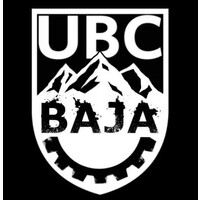
UBC Baja SAE
UBC Baja is a team of dedicated Undergraduate Engineering Students from The University of British Columbia. Together the team works to design, build, test, and race a single seat all-terrain vehicle in International SAE Baja competitions. At competition, the team competes against 100+ other teams from across the globe and interact with automotive and off-road industry leaders. To follow this path effectively, UBC Baja creates a professional environment to not only provide an effective & collaborative environment for team members, but also facilitate the development of a vehicle that represent the team’s sponsors and the University well.






